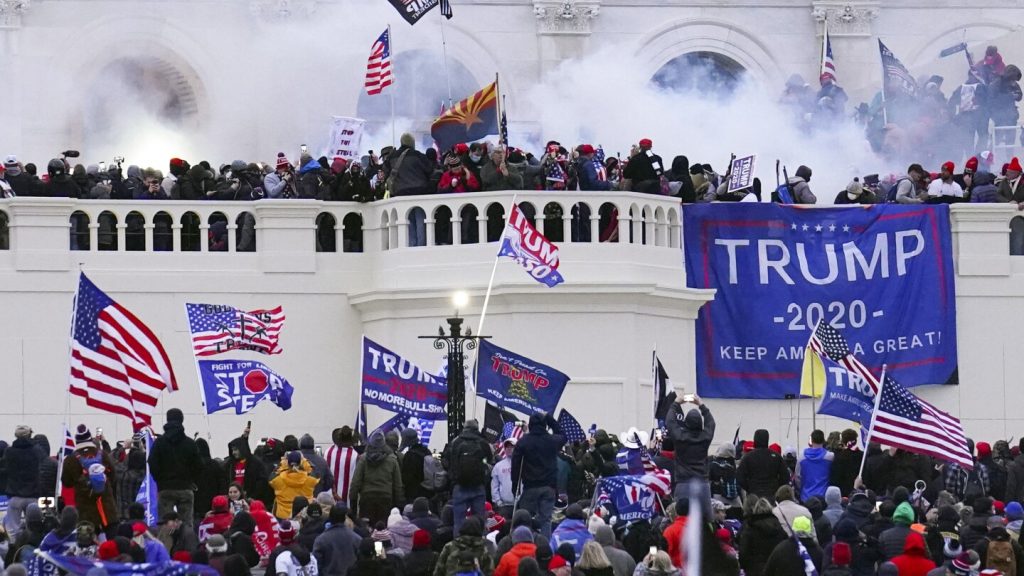In the aftermath of the 2020 presidential election, thousands of Donald Trump’s supporters gathered for a protest in response to his claims of election fraud. This protest escalated into hundreds of individuals storming the US Capitol under the banners of extremist groups like the Proud Boys and Oath Keepers. While many of these far-right networks have dissipated or retreated since the January 6 attack, experts are warning of a continued threat of political violence leading up to the upcoming election on November 5. Election officials have been facing threats, misinformation, and the potential for disruption from “election denialist” organizations. The FBI is currently investigating fires that destroyed hundreds of ballots in drop boxes in Oregon and Washington.
Many of Trump’s supporters involved in the Capitol riot had no prior criminal record or group affiliation, making it challenging for authorities to preemptively identify and prevent threats. Experts warn that it only takes one individual to cause significant damage. While extremists monitored by research organizations like the Global Project Against Hate and Extremism don’t appear to be focused on the upcoming election in their public chatter online, the potential for disruption remains high. Following the Capitol riot, Trump and his allies have generated anti-LGBTQ and anti-immigrant discourse that galvanizes extremists, resulting in protests and hoaxes in various communities.
Trump and his allies have utilized social media and rallies to promote violent conspiracy theories, racism, and xenophobia. Recent rhetoric from Trump, as well as misleading information about natural disasters in swing states, have contributed to a polarized and volatile political atmosphere. Threats of violence and attempts to overturn election results are causing significant concern among registered voters, with polls showing high levels of apprehension about potential violent disruptions. The association of over 200 defendants from the Capitol riot with extremist groups highlights the ongoing danger posed by such organizations.
The imprisonment of national leaders of extremist groups like the Proud Boys and Oath Keepers has left a vacuum in leadership, leading to decreased organizational capabilities. Although local chapters may continue to espouse extreme ideologies, their mobilization has been relatively subdued post-Capitol riot. The government’s crackdown on militias in the aftermath of January 6 has also curbed their activity, with many militia groups remaining inactive in recent months. While some Capitol rioters were followers of movements like QAnon, which propagated unfounded conspiracy theories, the movement has evolved beyond its origins and remains a dangerous influence.
Efforts by social media platforms to combat misinformation and extremism have driven some groups to alternate platforms, but experts warn that these individuals remain a threat. With the 2024 election on the horizon, concerns about the potential for violence, disruption, and attempts to overturn results are at the forefront of public consciousness. The lingering influence of Trump, along with the continued prevalence of extremist ideologies, pose a significant challenge to ensuring a peaceful electoral process. As authorities remain vigilant in monitoring and addressing threats, the specter of political violence looms large over the upcoming election.


